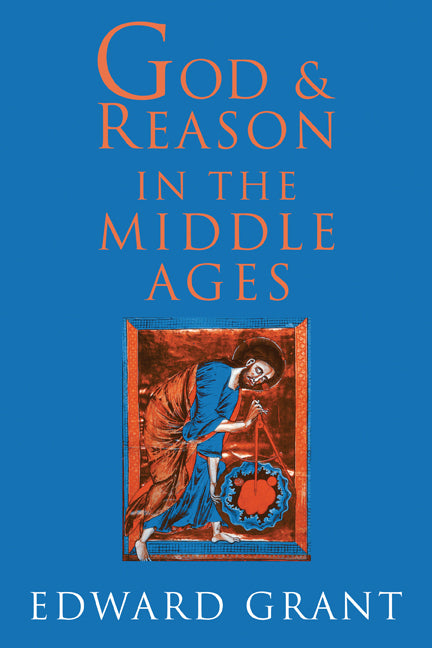Freshly Printed - allow 10 days lead
Couldn't load pickup availability
God and Reason in the Middle Ages
This book shows how the Age of Reason actually began during the late Middle Ages.
Edward Grant (Author)
9780521003377, Cambridge University Press
Paperback, published 30 July 2001
408 pages, 2 b/w illus.
22.8 x 15.2 x 2.8 cm, 0.557 kg
'… this book provides a good introduction to the uses of logic and reason in the medieval university as well as a strong corrective to the still current view of the middle ages as a period of intellectual sterility.' History
Between 1100 and 1600, the emphasis on reason in the learning and intellectual life of Western Europe became more pervasive and widespread than ever before in the history of human civilization. Of crucial significance was the invention of the university around 1200, within which reason was institutionalized and where it became a deeply embedded, permanent feature of Western thought and culture. It is therefore appropriate to speak of an Age of Reason in the Middle Ages, and to view it as a forerunner and herald of the Age of Reason that was to come in the seventeenth century. The object of this study is twofold: to describe how reason was manifested in the curriculum of medieval universities, especially in the subjects of logic, natural philosophy and theology; and to explain how the Middle Ages acquired an undeserved reputation as an age of superstition, barbarism, and unreason.
Introduction
1. The emergence of a transformed Europe in the twelfth century
2. Reason asserts itself: the challenge to authority in the Early Middle Ages to 1200
3. Reason takes hold: Aristotle and the Medieval University
4. Reason in action: logic in the Faculty of Arts
5. Reason in action: natural philosophy in the Faculty of Arts
6. Reason in action: theology in the Faculty of Arts
7. The assault on the Middle Ages
Conclusion: the culture and spirit of 'poking around'.
Subject Areas: History of science [PDX], History of ideas [JFCX], Early modern history: c 1450/1500 to c 1700 [HBLH], Early history: c 500 to c 1450/1500 [HBLC], European history [HBJD]


